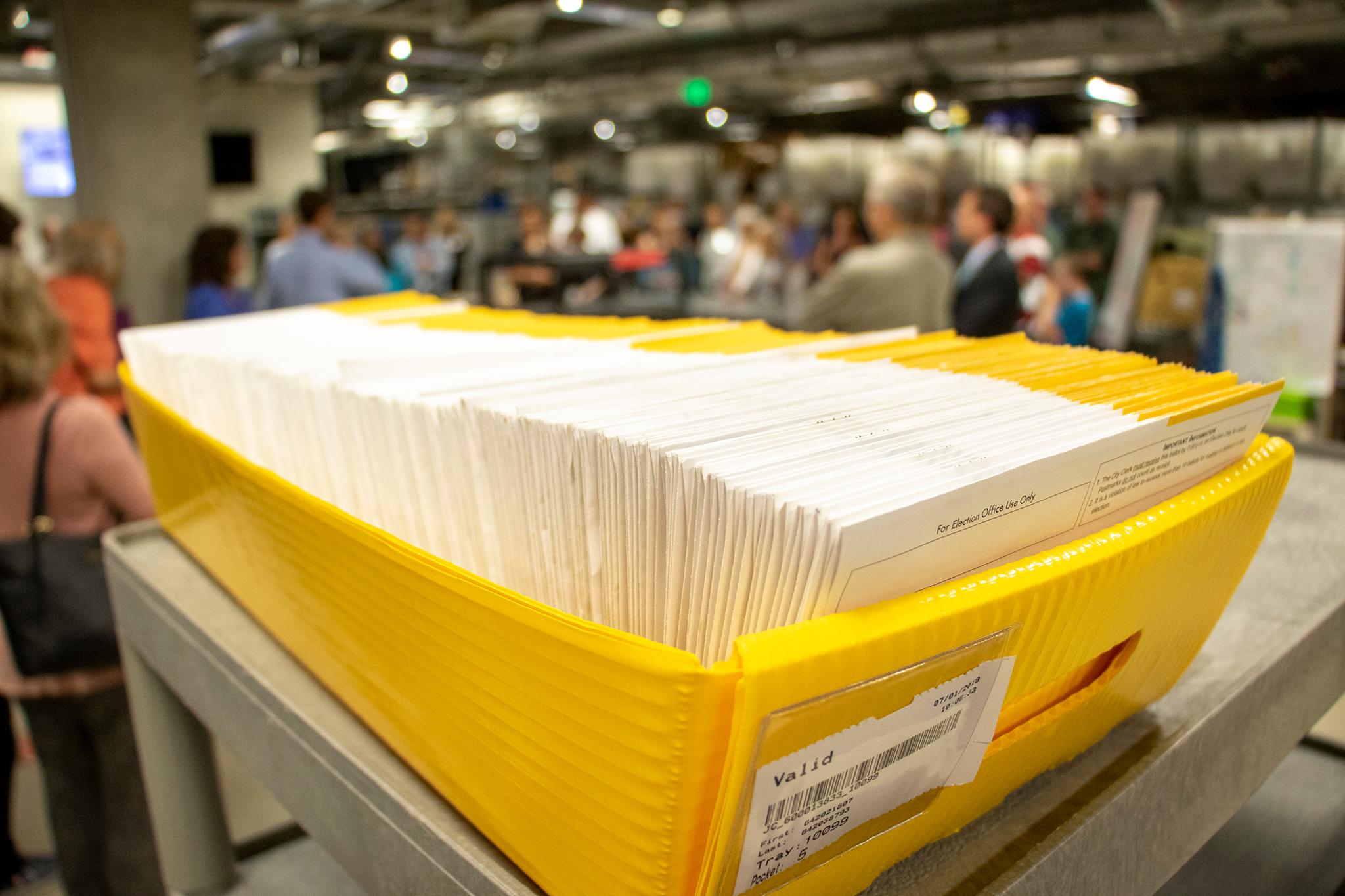While no municipal candidates are on Denver's November ballot -- though there are school board candidates -- voters in past elections may have noticed something missing on their ballots each season. Candidates for municipal positions like the mayor, City Council members, the city auditor and the clerk do not have party affiliations listed next to their names on the ballot.
Denverite reader Mike D. asked us what's up with that. We consulted academic journals and old publications to find out. The very simple answer to this question is that Denver's elected positions are nonpartisan.
The more complicated answer is that city officials are allowed to be affiliated with a party, and often are, but political parties don't make nominations for city positions. Despite being technically non-partisan, Denver has a long history of a Democrat-dominated city government. The mayor's office has been occupied by a Democrat since 1963.
The vast majority of major American cities have nonpartisan city governments. Many of these cities made the switch in the late 19th and early 20th centuries during a period known as the Progressive Era, a period characterized by a push-back against corrupt political machines that ran many cities. Non-partisanship was seen as a tool for breaking up one-party rule and diminishing the power of entrenched party bosses.
Denver's move to non-partisanship began along the same path of other cities during the Progressive Era. City reformers were sick of the entrenched power of Denver's Democratic party and then-mayor Robert Speer (yes, the road is named after him), so they launched a campaign against him and won the election in 1912. In 1913, the reformers changed Denver's charter from a mayor-based system to a commission system where a headless, non-partisan group ran the city.
Now the story takes a more unusual turn.
By 1916, the commission had become unpopular, and Speer saw his chance for a comeback. He proposed a new charter amendment that would eliminate the commission system and reinstate a mayor-council form of government.
But rather than simply return to the previous charter, Speer's amendment made the mayor a much more powerful position than it was before, a system known today as a strong mayor city government.
The amendment also stipulated that Denverites wouldn't vote on their first mayor in the new system -- the position would automatically be filled by Speer himself.
This amendment, known as the Speer Amendment, passed and Denver's nonpartisan, strong mayor system has been around ever since.
Now you know, Mike, and so does everyone else. Thanks for the question.
Clarification: This article has been edited to reflect that there are school board candidates on Denver's November ballot.













